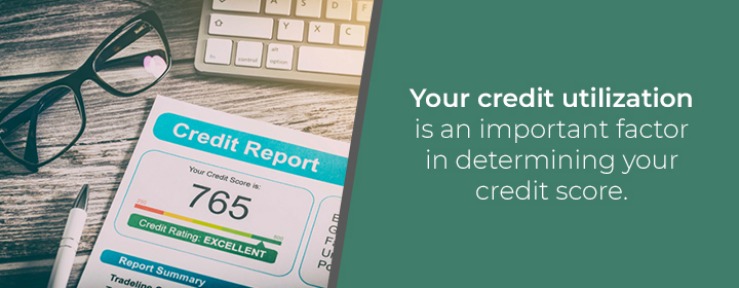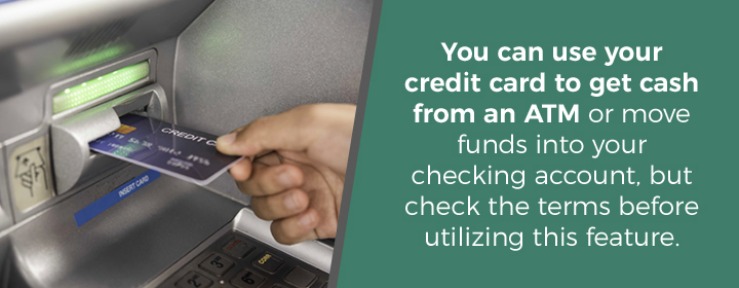
Many Americans struggle with credit card debt. Credit card balances increased by $52 billion to a total of $860 million during the last three months of 2021.Credit card debt can be a burden on many individuals and families. In this article, we’ll explain everything you need to know about credit cards so you can use them responsibly throughout your life.
Mastering the Lingo: 10 Essential Credit Card Terms
Get to know these important credit card terms so you can use your card(s) responsibly.
- Annual fee: This is a once-a-year charge added to your credit card statement. Not every credit card comes with an annual fee, so do your research before choosing a card. Annual fees are most commonly associated with rewards credit cards.
- Annual percentage rate (APR): This is the cost of borrowing money with your credit card over the period of a year. It includes the interest rate and any other fees. Of course, if you pay off your balance in full each month, you won’t pay interest on charges.
- Available credit: This is the amount of borrowing power available to you on a given day. Simply put, your available credit = your credit limit (see below) - current balance + any pending transactions.
- Average daily balance: If you carry a balance from month to month, interest charges are calculated by adding your total balance from each day in the statement period and then dividing it by the number of days. Again, if you pay off your balance in full each month, you won’t be charged interest at all.
- Balance transfer: If you already have credit card debt, you may want to transfer a balance from one card to another with a lower interest rate or special offer.
- Cash advance: Did you know you can use your credit card to get cash from an ATM or move funds into your checking account? Cash advances usually have different terms, so again do your research before utilizing this feature.
- Credit limit: When you apply for a credit card and get approved, a credit limit (the total amount you can borrow) will be determined based on factors such as your credit score and income.
- Credit utilization rate: Of course, just because you can borrow a certain amount doesn’t mean you Your credit utilization, i.e., the amount of debt you’re using at a given moment, is an important factor in determining your credit score. A good rule of thumb is to borrow no more than ⅓ of your credit limit. A higher credit utilization rate can lower your credit score. Your credit score is a number between 300 and 850 that lenders use to determine a customer’s likelihood of repaying the debt. The higher the score the better.
- Minimum payment: This is the smallest monthly payment you can make without getting a late fee. However, if you only pay the minimum, you’ll end up paying more in interest. It’s best to pay off your balance in full if you can or, if not, pay somewhat more than the minimum.
- Variable interest rate: Your credit card rate can fluctuate based on the prime rate, as well as factors such as a late payment.
Strategic Spending: When to Use Your Credit Card
As a general rule, you shouldn’t use your credit card unless you know you’ll be able to pay off the balance by the due date. However, that doesn’t mean using a credit card is always a bad idea. Here are three good reasons to use your card:

You need to build (or rebuild) your credit.
In order to have a good credit score, you need to demonstrate your ability to use credit responsibly. It’s also helpful to have a variety of credit types in your credit history. To use a credit card to build your credit without going into debt, use it for just one monthly bill or purchase and pay it off by the statement due date.

You want to earn cash back and/or other rewards.
Some people pay for everyday purchases, such as groceries and transportation, with a rewards credit card in order to rack up points, miles, or cash back. This strategy is perfectly fine as long as you don’t carry a balance. In that case, you’re probably paying more in interest and/or annual fees than you’re getting back in rewards.

You have no other way to cover an emergency.
Sometimes the unexpected happens. Your car breaks down; your child has to go to the ER. As long as you aren’t using your credit card for unnecessary purchases, it’s okay to use it once in a while for an emergency. You can also work toward building an emergency fund so that you won’t have to use credit for this purchase in the future.
Staying on Track: How to Avoid Late Credit Card Payments
Credit cards have strict payment due dates. If you don’t make a payment online or by phone or mail before the date and time due, you’ll be charged a late fee. Late payments can also reflect poorly on your credit score. That’s why it’s a good practice to set up automatic payments, either for the full balance or at least the minimum payment. That way your payment will be processed on the due date even if you forget.

Finding Your Perfect Match: Choosing the Right Credit Card
Don’t just apply for the first card you see. Learn about the different types of credit cards so you can use them responsibly.
- Secured Credit Card: While most credit cards are unsecured, people with no credit history or a lower credit score may need to use a savings account as collateral for a secured card with a small credit limit.
- Balance Transfer Card: Typically comes with an introductory 0% APR offer for new cardholders who transfer a balance. However, there may be a fee charged for the transfer. Before you do a balance transfer, think through whether or not you can actually pay off the balance before the introductory APR period is over.
- Rewards Credit Card: Offers one type of reward (such as cash back or airline miles) or lets you choose between several types of rewards.
- Co-branded Credit Card: Surely, you’ve noticed that just about every retail brand, airline, and gasoline chain has its own credit card. Co-branded simply means there is an issuing bank but the card is “branded” with the name of the company. These credit cards generally do not offer better terms or rewards than regular cards, so only sign up for one if you have a very good reason to do so and know you won’t rack up charges.
- Business Credit Card: Specifically for small business owners and other business accounts. Business and personal spending should be kept separate on their respective cards.
Apply for a JSB Credit Card Today!
JSB offers three types of Visa Credit Cards: Visa, Visa Gold and Visa Business. Our Visa Credit Cards have no annual fees, no cash advance fees, no balance transfer fees and low fixed rates. All JSB Visa Credit Cards have the chip technology that helps protect you from potential fraud. Learn more and download an application !

